-
About
- About Listly
- Community & Support
- Howto
- Chrome Extension
- Bookmarklet
- WordPress Plugin
- Listly Premium
- Privacy
- Terms
- DMCA Copyright
- © 2010-2025 Boomy Labs


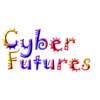 Olinga Taeed
Olinga Taeed
Listly by Olinga Taeed
Cyber Futures is a network of centres, institutes and labs that aims to operates as a focus of expertise, know-how and resource amongst members.
We want our solutions to be inspired by the latest innovations in tech driven thinking – decentralization and distributed knowledge inherent in current trends of DLT, IoT, AI, Web3, 5G, VR, AR, 3DP, WYOD, BYOD … or future evolving technologies (ie future cities, ultra-scale computing, biocomputing etc).
Cyber Futures represents a network of international collaborative working so we learn from best practice wherever it may reside.
Source: http://www.cyberfutures.net

Cyber Futures Marketplace will allow a student to plan out their education by setting out their career destination and having Cyber Futures online portal map out the different educational and geographic pathways achieving it through a rainbow of providers. Apart from the usual school/college/university offering, the access will be through an online portal as well as physical spaces in the community, both for the enquiry and for the content delivery

To enable the Marketplace to happen we have designed an Educational Passport: Distributed Learning Ledger based on blockchain technology. This allows for all stakeholders to contribute and take out from the pot by being recognised for their engagement, whether through hard tangible extrinsic learning (eg. certificates) or soft intangible intrinsic learning (eg. experience). The passport captures the value of the learning and articulates it in a knowledge token that can be exchanged

The blockchain token that captures the above knowledge transfer is called an EduCoin which can have both financial value (eg. digital currency like Bitcoin or normal currency ) and non-financial value (eg. Microshare of you, a course, an organisation, an idea, etc). The EduCoin is to fulfil the United Nations SDG’s (sustainable development goals - #4 “Ensure inclusive and quality education for all and promote lifelong learning”). It is part of a family of SDG Coins. It also allows investors who believe in each goal to buy into the educational value set
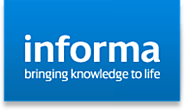
Informa global portfolio of knowledge, event and information based businesses connects people, providing unrivalled access to high quality, specialist intelligence and links across commercial, professional and academic communities.

Founded in 1975, Microsoft is the leading platform and productivity company for the mobile-first, cloud-first world, and its mission is to empower every person and every organization on the planet to achieve more

Tata Motors forays into future mobility solutions with TAMO. As a core element of its transformation journey FutuReady, Tata Motors has rolled out its new Passenger Vehicle strategy and introduced its new sub-brand — TAMO

As a leading global communications company, innovation is at the heart of what we do at BT. Today we are one of the largest investors in R&D in the UK.

Get the content you need, when you need it. EdCast is the leading personalized learning experience platform for businesses. We Aggregate, Create, Curate, Target and Analyze. Knowledge network and micro-learning experience in one
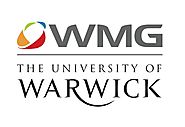
HAT: Hub-of-all-Things: Platform for Multi-sided Market powered by Internet-of-Things. Opportunities for New Economic & Business Models
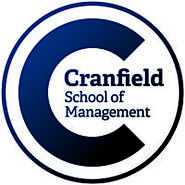
The Bethany Centre for Entrepreneurship runs a series of Venture Weekends and Start-Up programmes to equip participants with skills and know-how to turn their ideas into new ventures and a chance to network with like-minded researchers, entrepreneurs and experts from multiple disciplines and backgrounds

Looking at Business Models and currently leading a large EU grant looking at Augmented Reality and Virtual Reality in Cultural Heritage sites. We also have expertise in Problem Structuring Methodologies, Modelling and Simulation and Text Analytics
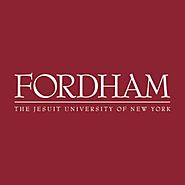
The Institute of International Humanitarian Affairs (IIHA) is the leading academic unit researching on humanitarian solutions in blockchain and the circular economy. It has entered into a 5 year agreement with the Centre for Citizenship, Enterprise and Governance (www.cceg.org.uk) to develop HumTech, SocialTech, FaithTech, GenderTech, etc solutions for the global market.

The School of Computing, Media and the Arts at Teesside University is one of the largest enroller of computing students in the UK. Our computing programmes are either British Computer Society and/or Skillset set approved and we have an international reputation in producing excellent graduates in the areas of Computing Games, Animation and Visual Effects. Our main research areas include Artificial Intelligence (AI), Formal Methods, Cybersecurity, Machine Intelligence, Software Verification and Validation, Cyber-Physical Systems, Virtual Environments, Computer Games and Digital Media

The International Academy for Enterprise Systems Innovation has a particularly strong relationship with SAP and the degrees that are taught within the Academy are reinforced with access to and experience in numerous SAP systems including ERP, Customer Relationship Management, Business Intelligence, Business Objects and over half a dozen other SAP components
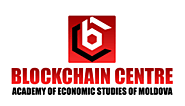
The Blockchain Centre at the Academy of Economic Studies of Moldova (ASEM) is a lab and think tank based on the cross-fertilization of ideas and initiatives from the local academic community, the corporate world, the startup ecosystem, and the regulators. The centre aims to promote and encourage Blockchain (i.e Distributed Ledger Technology) education, training and multi-stakeholder project management in the Republic of Moldova

The CCEG Blockchain UN Lab focuses on the transaction of intangible and non-financial values using a unique combination of Blockchain Technology and the Social Earnings Ratio. Both represent the leading edge of current Fintech, Socialtech and Humtech innovations

The Education Foundation in its first 5 years of work has delivered advisory work and partnership projects in the arenas of: teacher’s professional development (Teacherlab); technology and innovation (Learning Lab); creating a vibrant UK edtech startup ecosystem (Edtech Incubator & Edtech UK); and supporting FE colleges and the skills sector with the digital agenda (Digital Colleges)
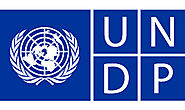
UNDP Istanbul Regional Hub for Europe and CIS. It is a mechanism for exploring and tapping into new financial technologies and mechanisms to access investment for achieving Sustainable Development Goals (SDGs). Since the Lab launched in 2016, we have been working to provide hands on technical expertise, advisory support and market intelligence to over 30 UNDP offices, national partners and governments around the world to revolutionize development finance and tap into new sources of capital

Code Institute | Full Stack Software Development Diploma. Change your life by learning code in as little as 12 Weeks with a Diploma in Software Development. Available Mentored Online or Accelerated in Classroom.

The Science and Technology in Pedagogy (STRiPe) Research Group was set up to allow collaboration between staff working on teaching and learning activities related to science and technology. Pedagogy is central to our success, and having a cross-disciplinary and cross-university group aims to help with this

LSBU is developing a Cyber Security Lab opening in September 2017. The Lab will be deployed in a Data Center that will have no interaction with the rest of the University's network so that the students (at both UG and PG level) will gain experience in penetration testing and ethical hacking

Internet-of-Value Blockchain Alliance for Good majors on Impact Investment, United Nations Sustainable Development Goals (SDG), Alt-Coins including Women's, Islamic, Leadership, Product Provenance, Water, etc

The Atrium houses Computer Games Design and Network and Software Engineering Labs, bringing STEM subjects (Science, Technology, Engineering and Mathematics) together

The Computer Science department is extremely active in knowledge exchange and enterprise activities, and is emerging for its fast-growing research environment and reputation. Since the last REF 2014 the department has doubled its research capacity and current members have demonstrable evidence of international world leading research.
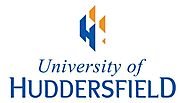
Computing has a vibrant and rapidly growing research community with expertise in such diverse areas as visualisation, information and systems engineering and intelligent systems. Our aim is to research and develop new methods and technology in computer science that will have a real impact on global grand challenges in areas such as transport, health, security and energy.

Cyber Futures is a network of centres, institutes and labs that aims to operates as a focus of expertise, know-how and resource amongst members.
We want our solutions to be inspired by the latest innovations in tech driven thinking – decentralization and distributed knowledge inherent in current trends of DLT, IoT, AI, VR, AR, 3DP, WYOD, BYOD … or future evolving technologies (ie future cities, ultra-scale computing, biocomputing etc).
Cyber Futures represents a network of international collaborative working so we learn from best practice wherever it may reside.